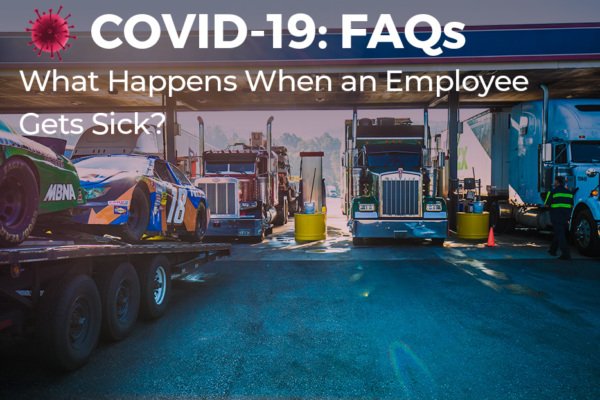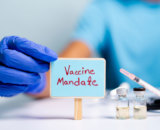One of my employees calls in sick. May I ask the employee specific questions about his/her symptoms?
As of March 21, 2020, the answer to this question is “Yes.” You may ask employees if they are experiencing any symptoms of the pandemic virus. For COVID-19, these symptoms include: fever, chills, cough, shortness of breath, and/or sore throat. This information must be kept in a confidential medical record.
Normally, an employer cannot ask these types of questions under the Americans with Disabilities Act (ADA). The key to whether an employer can ask about symptoms depends on whether the CDC and your state/local health department have said that a particular pandemic causes a substantial risk of public harm. If so, an employee with symptoms of the virus poses a “direct threat” to others in the workplace, so employers can ask about symptoms to protect others. To determine if a pandemic meets this “direct threat” standard, rely on the latest assessments by CDC and your state/local public health departments. According to the Equal Employment Opportunity Commission (EEOC):
Based on guidance of the CDC and public health authorities as of March 2020, the COVID-19 pandemic meets the direct threat standard. The CDC and public health authorities have acknowledged community spread of COVID-19 in the United States and have issued precautions to slow the spread, such as significant restrictions on public gatherings. In addition, numerous state and local authorities have issued closure orders for businesses, entertainment and sport venues, and schools in order to avoid bringing people together in close quarters due to the risk of contagion. These facts manifestly support a finding that a significant risk of substantial harm would be posed by having someone with COVID-19, or symptoms of it, present in the workplace at the current time. At such time as the CDC and state/local public health authorities revise their assessment of the spread and severity of COVID-19, that could affect whether a direct threat still exists. [Source: "Pandemic Preparedness in the Workplace and the Americans with Disabilities Act," issued by the EEOC in 2009; updated on 21 March 2020.]
What should I do if an employee has been in close contact with a person who tested positive for COVID-19?
A person who has been in close contact with a person diagnosed with COVID-19 should self-quarantine. Employers can require the employee to leave work or stay at home.
May I require employees to have their temperatures taken at work?
Yes. According to the EEOC: “Because the CDC and state/local health authorities have acknowledged community spread of COVID-19 and issued attendant precautions as of March 2020, employers may measure employees' body temperature. As with all medical information, the fact that an employee had a fever or other symptoms would be subject to ADA confidentiality requirements.” (Please note that it is possible for someone to have the coronavirus without an elevated temperature.)
May an employer require an employee who is out sick with pandemic influenza to provide a doctor’s note, submit to a medical exam, or remain symptom-free for a specified amount of time before returning to work?
Yes, during the COVID-19 pandemic emergency, an employer may apply these requirements, as provided in the ADA. The employer should set a uniform policy for all similarly-situated employees.
An employee has tested positive for the coronavirus. What should I do?
- If the employee is at work, send him/her home promptly.
- Quickly inform and encourage other employees to self-monitor for signs and symptoms of COVID-19 if they could have been exposed to the coronavirus while working.
- But…don’t share the name of the employee who has tested positive. (in accordance with the Americans with Disabilities Act.)
- Employers may ask an employee infected with Coronavirus if this fact can be disclosed to others, but the employee’s approval must be voluntary.
- Notify relevant health department authorities.
- Block off the area(s) where the sick employee worked.
- Hire a professional cleaning and disinfection service or follow CDC recommendations for cleaning and disinfection following a coronavirus exposure. Check with local/state health departments to ensure you are following any additional guidance.
- Communicate to all employees so they know that, in the event of an exposure, you are taking immediate action to protect customers and employees. Again, remember that the name of the person must be confidential. Detail your efforts to clean and sanitize your facility, explain that you are working closely with CDC and state and local health organizations.
Be prepared with a statement if contacted by media. Here’s an example: https://news.marriott.com/news/2020/03/11/marriotts-updated-statement-on-novel-coronavirus-covid-19
Subscribe to Updates
NATSO provides a breadth of information created to strengthen travel plazas’ ability to meet the needs of the travelling public in an age of disruption. This includes knowledge filled blog posts, articles and publications. If you would like to receive a digest of blog post and articles directly in your inbox, please provide your name, email and the frequency of the updates you want to receive the email digest.

